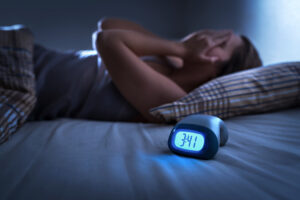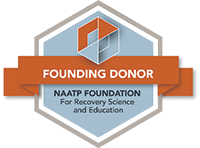For many, sleep is the one chance to get away from the troubles of the world and have a few moments of peace and rest. To some, however, even this brief moment of peace is denied to them.
This is why some people can’t sleep without alcohol, or some other sleep aid. There are many who find sleep to be very elusive, and have to rely on substances just to get a decent night’s rest.
Why Do People Find It Difficult to Sleep?
 Many believe that a good eight hours of sleep is all that is needed to stay healthy and be energized for the following day. While this might be true to a certain extent, there is also the matter of the quality of sleep, which ultimately dictates if the person really gets any benefit from the sleep they get.
Many believe that a good eight hours of sleep is all that is needed to stay healthy and be energized for the following day. While this might be true to a certain extent, there is also the matter of the quality of sleep, which ultimately dictates if the person really gets any benefit from the sleep they get.
Sleep is not simply when one dozes off, drifts into dreamland, and wakes up feeling refreshed and ready. There are actually stages that people go through when they fall asleep.
The two broad segmentations of sleep are non-rapid eye movement sleep (NREM) and rapid eye movement sleep (REM). NREM is further divided into subclasses, all of which have their specific functions in the sleep cycle.
Non-Rapid Eye Movement Sleep (NREM)
Non-rapid eye movement sleep is made up of three progressive phases, and with each phase, the person goes into a deeper slumber.
NREM Stage N1
This phase is where a person starts to fall asleep and typically lasts only a few minutes. As this is the lightest stage of sleep, people who are awakened at this stage barely even know that they have fallen asleep.
This stage is where a person’s breathing and heart rate starts to slow down. The muscles begin to relax and eye movements begin to slow as well.
NREM Stage N2
If not disturbed, a person slips from the N1 stage to the N2 stage, which is a deeper phase of the sleep cycle. This stage is the longest phase of the entire sleep cycle.
At this stage, the temperature of the body drops slightly, accompanied by further slowing of heart and breathing rate. Eye movement tends to stop at this stage. It is, however, still possible to be awakened easily from this stage.
NREM Stage N3
This third stage of the non-REM sleep is considered the deepest of all sleep stages. This is where the body repairs itself as it goes into full relaxation. If the person sleeping is still at an age where growth still occurs, this is the sleep stage where it happens.
Compared to the first 2 NREM stages, waking a person from this stage is more difficult. The body is fully relaxed, there is no eye movement, and heart and breathing rate is at their slowest.
Rapid Eye Movement (REM) Sleep
Typically the rapid eye movement stage of sleep happens around 90 minutes after a person begins to fall asleep. This is what is known as the dreaming stage.
This sleep stage is characterized by rapid eye movement, hence the term for it. Heart and breathing rate start to elevate compared to the NREM stage, and brain activity significantly increases.
Although these sleep stages happen consecutively, they also occur multiple times during the period that the person is asleep. That means that these stages occur in cycles as the person lies in slumber.
Difficulty in sleeping is typically because these cycles are disrupted. Even if a person sleeps for a long period, if any of these cycles fail to occur, the quality of sleep is affected.
This is why some people still feel weary even after an entire night’s sleep. People who say they have trouble sleeping without alcohol will not even begin to believe that their troubles actually come from the alcohol, which affects the quality of their sleep.
What Makes Sleep Difficult for People?
People tend to think that working themselves to the bone would help them sleep better, but this is not always the case. There are a number of factors that play a part in a person’s difficulty in getting decent sleep. These are things they may or may not be aware of, and could be because of what they do just before sleeping, or even something that they have been doing for the longest time.
Stress could affect many things in life, even the things that are supposed to relieve people of it, such as sleep. This could come in the form of an impending event that the person is anxious about, or concerns over needs such as money or resources, or even some recent trauma that the person did not really think of, but did not fully recover from.
In many instances, this sleep disruption is because the person could have been stressing over something just before sleeping. This inevitably carries over into sleep as the stressful idea weighs heavily on the person’s mind.
The human body relies on specific rhythms and routines to make some functions work well, such as sleeping. A changing schedule, where people often have to sleep at changing hours due to work or some other reason, is sure to disrupt any kind of pattern or schedule related to sleep. The best example of this is jet lag for people who travel a lot.
The changing pattern confuses the internal “clock” of the body, so sleep could come at a time when the person should be working and be wide awake during the time they should be sleeping.
Many joke about how their late night show is so boring that it lulls them to sleep, but the reality of it is that flashing lights tend to stimulate the brain instead of relaxing it.
This is why people are advised not to watch TV or use their mobile devices just before sleeping, as it tends to stimulate them into wakefulness. Reading a book could be much more effective in getting relaxed enough to sleep.
Many do get a bit peckish just before going to bed. This is quite normal, but the particular food or drink taken just before sleeping could also affect a person’s ability to fall asleep.
Coffee, tea, and sodas are actually stimulants. They contain sugar, caffeine, and other ingredients that tend to stave off sleep instead of inducing it. Too much food will also cause problems as many cannot fall asleep while digesting, not to mention the fact that stomach acids at work tend to flow from the stomach to the esophagus, which causes heartburn.
Some necessary medications could also affect a person’s ability to sleep, or even if they do fall asleep, will affect the quality of it by disrupting the cycle.
The more common substances known to affect sleep are prescription medications for asthma, blood pressure regulation, weight loss pills, and some antidepressants.
Some conditions are also known to disrupt sleep even if they don’t have any direct correlation with sleep. One example is gastroesohageal reflux disease (GERD) which causes too much stomach acid to be produced, causing great discomfort.
Chronic pain will also disrupt a person’s ability to sleep, as well as hypertension, asthma, and some forms of heart disease.
Will Alcohol Help in Getting a Good Night’s Sleep?
 The nightcap is often thought of as being able to help a person sleep better, since one of the more pronounced effects of drinking alcohol is the sensation of wanting to sleep.
The nightcap is often thought of as being able to help a person sleep better, since one of the more pronounced effects of drinking alcohol is the sensation of wanting to sleep.
This, however, is far from the truth. A study done in 2013 revealed that while alcohol does tend to help a person fall asleep quicker, it also reduces the REM sleep phase, which ultimately affects sleep quality.
People who experience disruptions in the REM cycle tend to experience difficulty in concentrating and focusing, and also feel drowsy or dizzy during the day.
In some cases, alcohol is believed to exacerbate sleep apnea, as it slows the breathing rate even further. This has led medical teams who study sleep to conclude that alcohol is not a sleeping aid, and instead is a sleep disruptor.
Is There a Treatment for Co-occurring Sleep Disorder and Alcohol Addiction?
The most common and effective treatment for co-occurring sleep disorder and alcohol dependence is detox and therapy done in rehabilitation.
A detox program will help deal with the toxin from excessive or prolonged alcohol intake and deal with the physical issues that came with it, while the therapy will deal with how the patient perceives alcohol as a sleeping aid.
The dependency is typically addressed through cognitive behavioral therapy, as there is a need to correct how the person perceives their inability to sleep, and the solution they think is most appropriate for it.
This therapy directly addresses the mistaken belief that alcohol helps the patient, and at the same time prevent the patient from shifting the dependency to other substances once they have been weaned away from alcohol.
Recover at Magnolia City Detox
Dependence is not easy to address, particularly if the patient believes that it has helped them in some way.
We understand this intimately, because we have been helping people with this problem for some time now, and we are quite proud of our achievements.
Let us help you recover fully, so that you may enjoy a life truly free of dependence.






